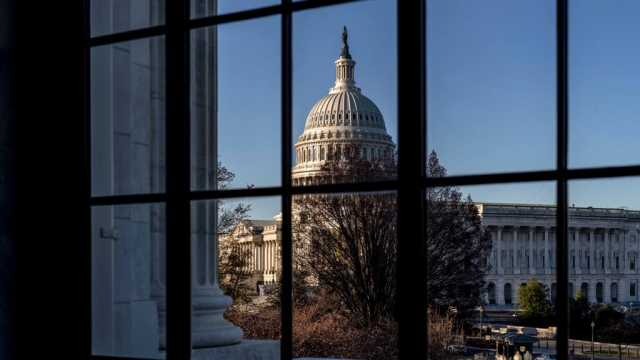The House of Representatives has passed a bipartisan budget bill in a crucial first step toward averting a U.S. default.
H.R. 3746 — the "Bipartisan Budget Agreement" — passed with bipartisan support and a final vote tally of 314 -117 Wednesday evening.
The Senate is expected to take certain steps to begin work on the bill right away on Wednesday night.
However, amendments from the Senate are expected, which may extend the time the chamber spends in debate by several days.
The bill includes contentious provisions, such as one that would speed up approvals for a new gas pipeline in West Virginia. Senators are expected to take the time to go on record and make their positions known.
The Senate will be working ahead of the Treasury's estimated June 5th deadline, the date at which the U.S. may run out of federal funds and default for the first time in U.S. history.
The bill as passed in the House suspends the debt ceiling until the beginning of 2025, puts caps on federal spending for the next two years, and adjusts certain policies, like instituting new work requirements for certain food aid recipients.
The Congressional Budget Office says the package would trim the federal deficit by $1.5 trillion over ten years.
Raising the debt limit will ensure that the U.S. can continue to pay its debts, and avoid an unprecedented default.
President Joe Biden told reporters earlier on Wednesday he was confident the deal he had struck with House Speaker Kevin McCarthy would survive its first big test in the House.
“I think things are going as planned," the President said, before he left Washington to speak at the U.S. Air Force Academy. "God willing by the time I land, Congress will have acted, the House will have acted, and we’ll be one step closer."
SEE MORE: Seniors concerned about Social Security amid debt limit uncertainty
Both Democrats and Republicans have had to fight for support for the bill. Conservative Republicans are disappointed the bill doesn't make deeper spending cuts. Progressive Democrats took issue with work requirements for older Americans who are seeking food aid.
Passage, then, came down to a bipartisan group of centrists in the House.
Michael Linden, Associate Executive Director of the White House's Office of Management and Budget, said a compromise like that was going to be inevitable.
"Whenever you have divided government that has to be a bipartisan decision, and that's what this deal represents — a bipartisan compromise that neither side is going to be perfectly happy with, but both sides can live with," Linden said in an interview with Scripps News. "The key thing that this does is it prevents an economic catastrophe, and it allows Congress to get on with the work of serving the American people."
The bill is expected to ultimately pass in the Senate and proceed to President Biden's desk.
Trending stories at Scrippsnews.com



